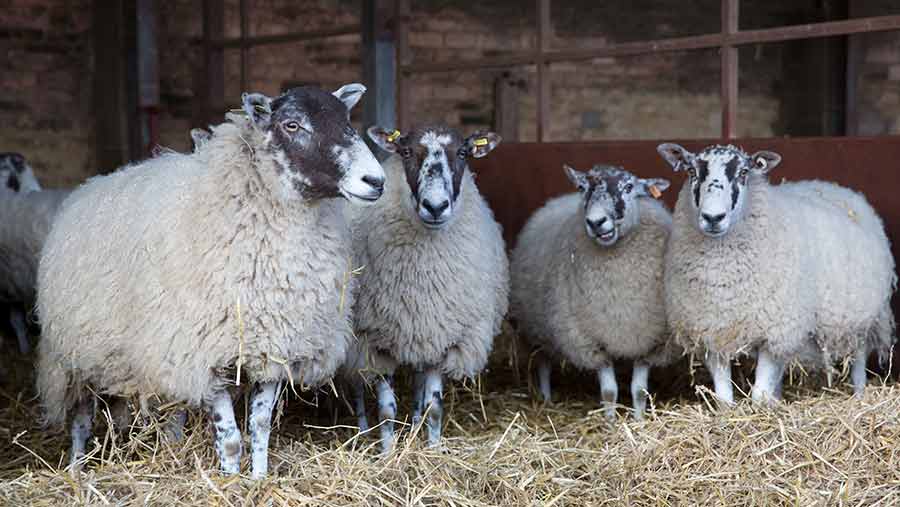Farmers warned to stay alert after Dutch bluetongue outbreak
 © Tim Scrivener
© Tim Scrivener Sheep farmers and vets are being urged to stay extra vigilant for the signs of deadly bluetongue virus in their flocks following a major outbreak in the Netherlands.
The Netherlands Food and Consumer Product Safety Authority says more than 1,200 livestock farms may have been affected in the country (PDF).
Latest figures to 10 October show 294 positive cases confirmed in the clinic, and 989 holdings tested polymerase chain reaction (PCR) positive for the BTV-3 strain of the virus.
See also: Emerging livestock diseases – another unwanted climate change effect
In the past few days, BTV-3 has also been detected in sheep in Merksplas, a province of Antwerp, in Belgium.
There is currently no vaccine available for this new strain of the virus (BTV-3), which is believed to have originated in central Africa. Therefore, the potential effect on UK sheep and cattle sectors could be huge.
The disease was reported on four sheep farms in the Netherlands on 5 September, the first outbreak in the country since 2009. In some confirmed cases on sheep farms, up to one-third of animals are reportedly being lost.
Vets in the Netherlands are reporting severe illness in sheep, with high fever, weight loss and blisters or lesions around the coronary band, udder, face and mouth.
Bluetongue, which is transmitted to animals by biting midges, mainly affects sheep, but it can also infect cattle, goats, llamas and alpacas. It has the greatest production effect on dairy cattle due to the drop in milk yield.
‘Prioritise biosecurity’ – NSA
Bluetongue could spread into the UK this autumn if infected midges are carried by the wind into England. There is also the possibility the disease will overwinter and then spread here next spring once midge activity picks up.
Phil Stocker, chief executive of the National Sheep Association (NSA), told the Farmers Weekly Podcast farmers must stay alert for signs of the viral disease and prioritise biosecurity on farms.
“We know that it’s midge season and the weather is really mild in the UK, so there is a risk of the disease coming across from the Netherlands, either by biting midges or by any live animals that have been brought over,” he said.
Mr Stocker is urging sheep farmers to work closely with their vets and stay alert for any unusual symptoms in their sheep and report it to the relevant authority (see panel).
Bluetongue: How to report the disease
Bluetongue is a notifiable animal disease, which means the Animal and Plant Health Agency (Apha) must be told immediately if a case is suspected.
- In England, call the Defra Rural Services Helpline: 0300 020 0301
- In Wales, call 0300 303 8268
- In Scotland, contact your local field services office
A Defra spokesperson said: “The UK remains officially bluetongue-free but we are not complacent against the risk it poses to our farmers.
“The detections in Europe are an important reminder to all farmers to be vigilant in sourcing their stock and germinal products, ensuring imported animals are properly vaccinated and that they have strong biosecurity practices in place to prevent the spread of disease.
“If farmers have any suspicions of disease, they should report them to Apha immediately.”
Further advice on how to spot and report the disease is available on Gov.UK.
